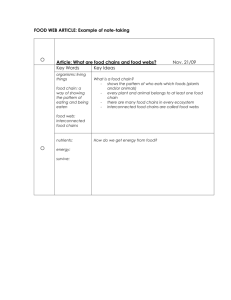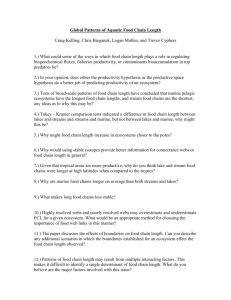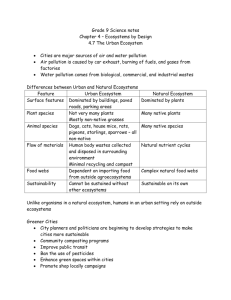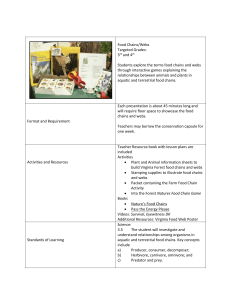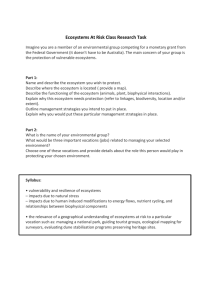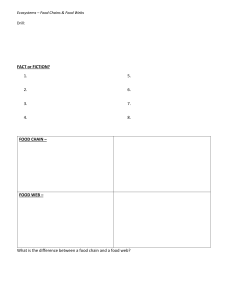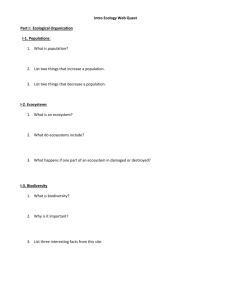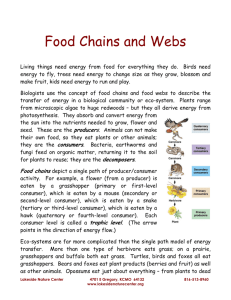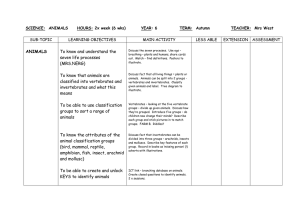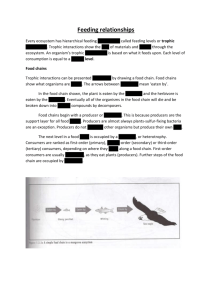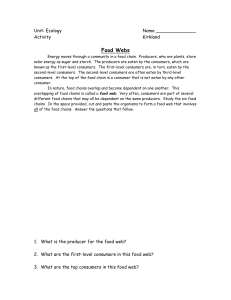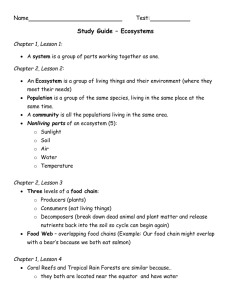Food Chains and Food Webs
advertisement
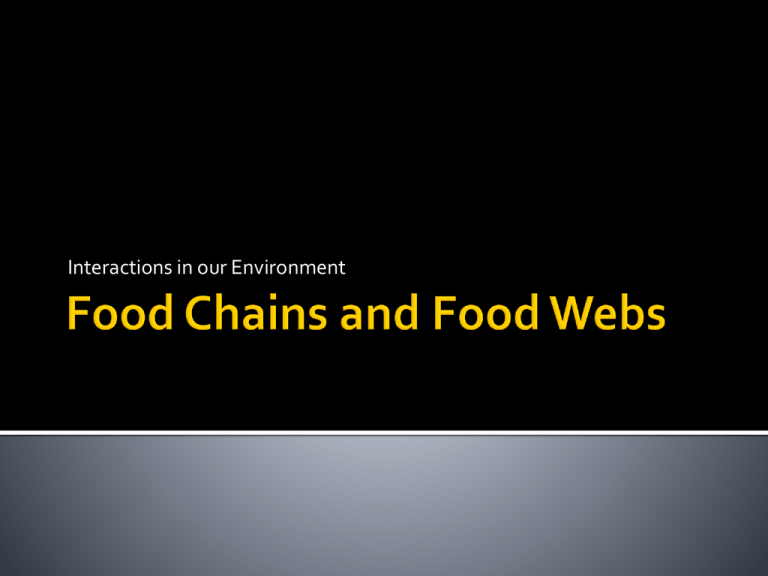
Interactions in our Environment Learning Goals: Describe a food chain and the effect of losing a part of that chain. Success Criteria: I can describe a food chain/web and discuss what happens when one part of the food web is lost. All energy in ecosystems originate with the sun. As we learned last lesson, plants absorb energy and turn it into foods such as sugars and starches. Animals eat the plants and the energy is transferred. Carnivores and omnivores eat those animals and energy is again transferred. sun grains chicken Chicken dinner Food Chain (def): A sequence that shows how energy and nutrients are transferred from one organism to another in an ecosystem. The number of “links” in a food chain can vary, but it always starts with a producer and ends with a consumer. Blueberry bush bear 2 links 5 links: dandelion aphid ladybug robin hawk In real ecosystems, food chains are not that simple. Producers (plants) are usually eaten by many different consumers (animals) which in turn can be eaten by many other animals. Food Web (def): A model that shows how food chains in an ecosystem are connected. In your group, create a food web. Work together to think of as many plants and animals as possible that will be part of your web. Animals/plants must be realistic and links must be accurate (e.g. A bear does not eat a lion!) You must identify your ecosystem! Your group will have 8 minutes to make your web. Be ready to present. Which group will have the most connections? What happens when one species is eliminated from the web? (Discuss as a class) If one species is eliminated (e.g. goes extinct) it affects the other species in that food web. Sometime other species will die or they may find an alternate source of food. When any part of a food web is changed the flow of energy is affected in a food web. We will be studying energy flows next. Food Chains, Food Webs and Energy Pyramids in Ecosystems Food chains/webs show how energy moves from one organism to another but they do not show how the energy is used. Work with a partner to find the important information and make jot notes about the information on pages 132-134. (Hint: divide the information into headings, following the text and use diagrams to help you illustrate and understand)
